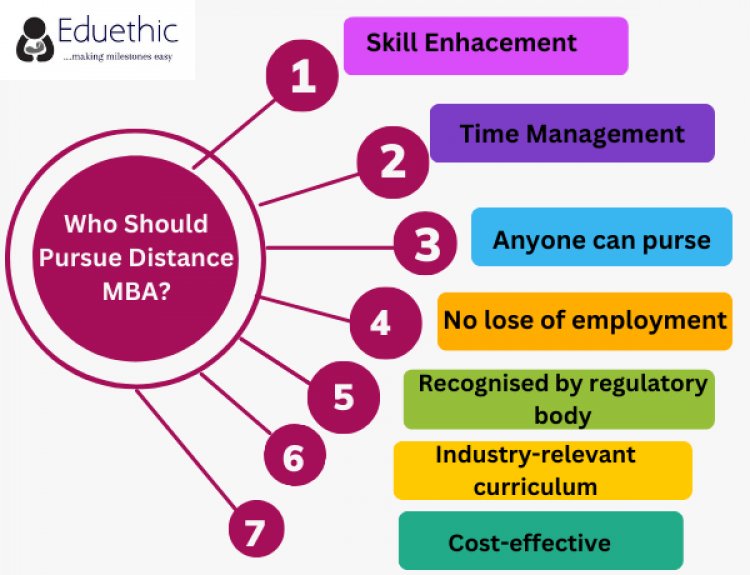Top 10 Distance MBA College In India
Many institutes in India offer Distance and Correspondence MBA. Suppose you are planning to pursue an MBA programme in distance mode. In that case, you should first understand what it is about, the eligibility criteria, the benefits, and the top colleges for Distance MBA.
Who Should Pursue Distance MBA?
Correspondence MBA or Distance MBA is mainly meant for people with limited time and resources. A working professional, fresh graduate, specially-abled or stay-at-home mother – anyone interested in an MBA program can opt for it. All one requires is a bachelor's degree and meeting the course eligibility criteria. Also, a Distance MBA costs much less than a regular MBA programme.
MBA is often deemed necessary to climb the ladder of corporate success. But, it is not easy to juggle work, family and study. Hence, an effective, hassle-free, but quality management degree becomes essential. "Qualitative education is crucial. Correspondence courses are convenient for working executives. There is no financial instability for the candidate or the requirement for geographical relocation," says Anuradha Manjul, public relations officer at IIM Lucknow.
However, a Distance MBA requires dedication and discipline. The absence of regular classes can lead to distraction and students not taking up lessons properly.
What are the Eligibility Criteria for MBA's Distance?
The eligibility criteria for Distance MBA or Correspondence MBA varies from institute to institute. Normally, a Distance MBA is for two years and can be completed in four years. Here are the Distance MBA eligibility criteria:
- The candidate must have completed Graduation from a recognized university.
- Work Experience is desired but not an essential requirement.
- Some institutes offer admission to Distance MBA based on MBA entrance exam scores such as CAT, MAT, CMAT, ATMA, XAT, etc.
- Some institutes conduct their entrance exam for admission.
Study Material in Distance MBA
Students enrolled in the Correspondence MBA or Distance MBA program receive study materials either online or manually) and assignments that must be submitted within a specified time. Semester-wise, bi-annual or annual exams follow this.
"Business education through distance learning is an overwhelming success. In America, specialist universities, such as the University of Phoenix, enrol hundreds of thousands of postgraduate business students. In India, the total is probably in the millions," states a leading world magazine, The Economist.
Benefits of Distance MBA
- Anyone can pursue a Distance MBA: Unlike regular MBA, Distance MBA can be pursued by anyone, whether they are students, working professionals or stay-at-home mothers.
- Skill enhancement: As mentioned earlier, an MBA degree has become necessary in today's competitive world; a distance MBA can equip you with the latest tools, technology, methods, etc., for the present and future.
- Time management: Distance MBA allows candidates to study without letting go of their other important responsibilities. Since there is no classroom teaching, this flexible mode of education allows the participant to use their time for studying according to their needs and convenience.
- Cost-effective: Distance or Correspondence MBA is much cheaper as it does not involve classroom teaching. This mode of MBA is suitable for candidates from all strata of society.
- Industry-relevant curriculum: Distance MBA courses offered by recognized colleges and universities offer course curriculum the same as regular MBA and are modified according to the industry need.
- Recognized by the regulatory body: UGC's Distance Education Bureau (DEB) approves distance MBA courses from all recognized MBA institutes. Check for UGC recognition before taking up a Distance MBA course.
- No loss of employment: Working professionals often take Distance MBA courses because they allow them to improve their managerial skills and acquire a degree while continuing their jobs.




Comments
Post a Comment